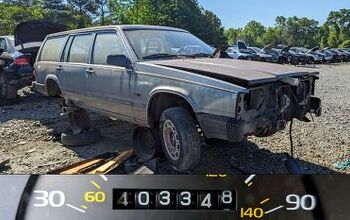Court Rules NHTSA Must Share Early Warning Data
The LA Times reports that a federal appeals court has ruled that the government may not withhold Early Warning data from the public. The info is collected in accordance with federal law requiring vehicle and component manufacturers to report information on their products (related to defects, injuries, deaths) to The National Highway Transportation Administration (NHTSA). The law was passed in 2000 in response to the Explorer/Firestone rollover scare. Until now, the information has been shielded from Freedom Of Information Act (FOIA) requests. Public Citizen forced the fork-over. To which The Rubber Manufacturers Association said phooey [paraphrasing]. "With this decision, unverified information released by the government can be misinterpreted and thereby unnecessarily alarm motorists about products that are safe." The Alliance of Automobile Manufacturers reckons "data that could cause a company commercial harm" should be withheld, including warranty and service information. The courts must still rule whether all Early Warning data should be made available, or just the information pertaining to cases involving injury and death.
More by Edward Niedermeyer


































Comments
Join the conversation
I'm not sure where to stand on this. There's some merit to holding back this information. Remember the whole Audi 5000 unintended acceleration issue that turned out to be, well, bogus? On the other hand, standard operating procedure for claims departments is to stonewall as long as possible, even when there's real risk.
I'm on the side of turning the lights on. Companies and governments have demonstrated repeatedly that they easily become up to no good when they act is secret.
While I agree with MikeInCanada that early disclosure can be damaging when the whole story is not in, it is interesting that corporations are treated differently than criminal defendants. If I am accused of robbing a bank, my name is in the newspaper and the state is forced to prove that I did it or drop the charges. In many cases of automotive and product safety, the accusations are in and the issue remains outside of public scrutiny. Case in point: SUV's in general are responsible for roll-over fatalities at a rate far in excess of that for passenger automobiles. Although we don't know all of the attendant engineering, it is apparent that people have a far higher probability of dying in an SUV rollover than in an automobile. In the case of the Explorer, tire inflation was found to be a part of the equation. Yet because of tort laws which are designed to point the blame, no one ever seemed to ask if people who drove the Explorer were more prone to underinflating their tires than any other segment of the population. We were left with the impression that only on the Explorer would tire inflation be a key safety issue when in fact the tire and its inflation are a key safety factor in any vehicle. This system needs overhaul and the way to do it is to turn the lights on.